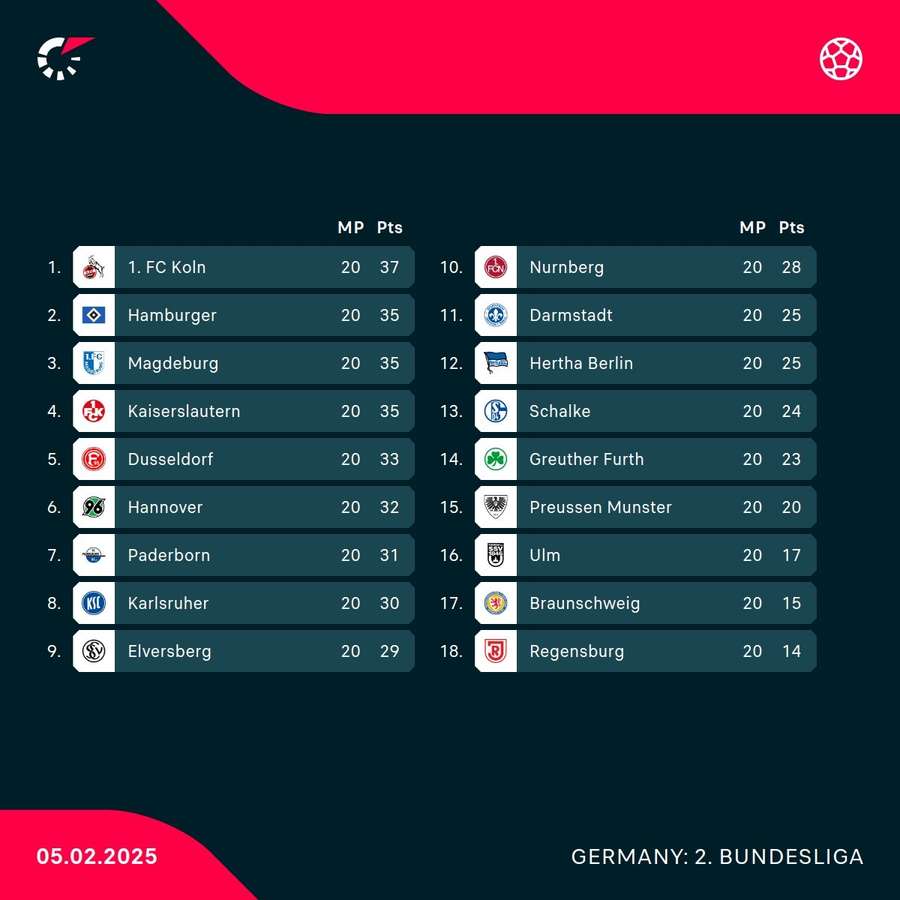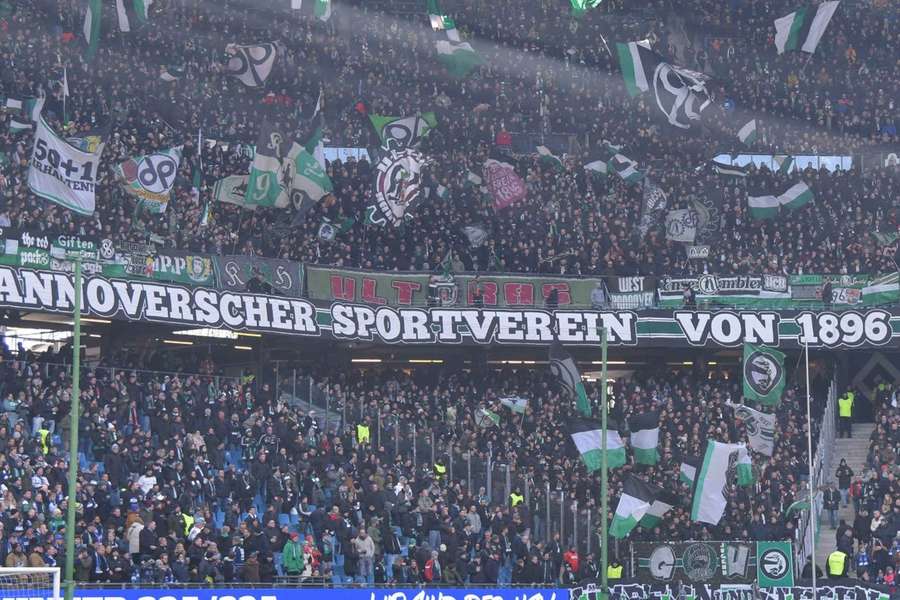Football lovers are growing disillusioned with the stronghold that traditional clubs have established across Europe's predominant leagues, with anticipated results and the rich only getting richer and richer. On the other hand, predicting the outcome of matches in the 2. Bundesliga is not to be recommended.
The 2. Bundesliga is by many described as the most exciting league in the world and not by coincidence as potentially 12 teams are still in the promotion hunt, separated by just 12 points, with over half the season gone and goals aplenty spicing up one of Europe's most intriguing and competitive divisions.
Clubs change positions at the top of the league almost every week and intriguingly Magdeburg have managed to climb to third having failed to win any of their home games so far this season, while drawing eight and losing two on their own ground.
Last season, 29 per cent (52 out of 180) of 2. Bundesliga results ended in draws, highlighting just how fiercely competitive this division is with 575 goals scored.
For Stefan Walther, sports editor at the Hamburger Abendblatt, the distribution of broadcasting revenue is the cause of the competitiveness of the league.
“80% of the funds from the sale of broadcasting rights go to Bundesliga while the rest is distributed amongst the teams in the 2. Bundesliga, so in terms of income there is not necessarily so much to divide the teams and this makes for a more competitive league,” says Walther to Flashscore.
“But the teams which then succeed in gaining promotion really struggle to establish themselves in the Bundesliga and that is of course among other things related to the substantial difference in TV revenue which normally accounts for around 15% of the budgets for clubs in the 2. Bundesliga,” adds Walther.
This weekend throws up one of the biggest clashes in German football when FC Koln face Schalke 04 on Sunday at the RheinEnergieStadion and it's no coincidence that two of Germany’s biggest clubs find themselves in the second-best league in the country.
Three of the six clubs to have lifted the most major honours in Germany now ply their trade in the second tier, with Nurnberg, Schalke and Hamburg currently outside of the top flight.
Former European champions HSV, who were the last original Bundesliga team to be relegated in May 2018, were once considered too big to go down, but now they find that they are too big to go back up and are now stuck in the 2. Bundesliga for a seventh successive year.
HSV are joined by Schalke, Nurnberg, Hertha Berlin, Kaiserslautern, Hannover and Fortuna Dusseldorf and this season, former Bundesliga champions FC Koln, after the club joined the group of fallen giants with their seventh relegation.
Walther points out that the presence of so many 'Traditionsvereine' in the 2. Bundesliga is a blatant sign of mismanagement and stresses that the alluring attraction of the 2. Bundesliga with so many household clubs present actually represents a big problem for German football.
“There is history of financial mismanagement amongst some of the bigger clubs in Germany. They had for a number of years more financial reserves at their disposal (through ticket attendance revenues and sponsorships) than smaller clubs but this also created greater scope for potential poor investments.
"At the same time, minnows like Heidenheim and Holstein Kiel have through clever squad building and less bureaucratic decision-making processes beat bigger clubs to the punch. And that is actually a big problem for German football,” explains Walther.
“When the German Federation tries to sell their broadcasting rights abroad to markets in Asia, North America and other continents, it’s a huge problem that a big portion of those people are not familiar with three-quarters of the teams in the Bundesliga.
"Nobody wants to pay money to watch the likes of Heidenheim, Bochum and Hoffenheim and German football loses enormous sums of money on that account,” adds Walther.

However, in Germany the presence of prestigious clubs with large stadiums has led to impressive attendance figures in the 2. Bundesliga which last term outdid those of LaLiga in Spain.
Schalke's Veltins Arena was one of five 2. Bundesliga grounds to host EURO 2024 last summer, alongside Hamburg's Volkparkstadion, Dusseldorf's Merkur Spiel-Arena, Hertha's Olympiastadion and Koln's RheinEnergieStadion.
To give an indication of the level of attendance figures, Matchday 19 - which saw no less than 71,500 pass through the stands at the Olympiastadion as Hertha Berlin hosted Hamburg while Schalke faced Nurnberg at a sold-out Veltins-Arena (62,278) - set an all-time record for the 2. Bundesliga, as 322,468 people attended the nine games.
Impressive crowds also reflect the fact that German clubs maintain a close connection to the local roots through the '50+1' regulation rule that prohibits outside investors from becoming majority stakeholders. In addition, fair ticket prices allow more people to enjoy the matchday experience.
The league average for a season ticket in a standing area last season was a mere 205 euros - which adds up to just 11 euros per game - while the cheapest season ticket in a standing area could be obtained for as little as 150 euros.
So, the next time you scroll through a Europan map to choose where your next football outing with your friends should take place, a match in the German 2. Bundesliga would certainly be a great option!
Follow all the drama from the 2. Bundesliga with Flashscore.

